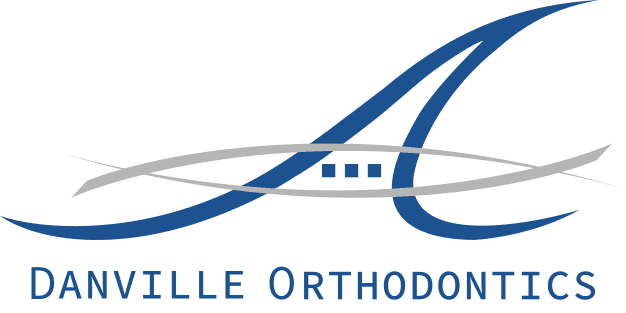How Diet Influences Oral Health: Tips for Danville Families
Brushing and flossing are only part of the story when it comes to keeping our teeth and gums healthy. What we eat plays a huge role in maintaining oral health, especially for Danville families looking for practical ways to keep everyone’s smiles strong and cavity-free.
This blog breaks down how your daily diet can support or sabotage your dental health and offers useful, family-friendly tips that fit right into your everyday life.
From the dangers of sugar to the benefits of essential nutrients like calcium and vitamin D, we’ll walk through everything you need to know. Whether packing school lunches, planning family dinners, or just trying to break a soda habit, here’s how you can make smarter choices for a healthier mouth.
Connection Between Healthy Eating and Oral Health
“Healthy eating” isn't just a buzzword. It’s a lifestyle choice that affects your whole body, including your mouth. A well-balanced diet helps your teeth stay strong, keeps your gums healthy, and supports your body’s natural ability to fight off infections and inflammation.
But what does healthy eating actually look like when we’re talking about oral health?
Focus on Whole Foods
- Fruits and Vegetables: Crunchy produce like apples, carrots, and celery can naturally clean your teeth and stimulate saliva production, which helps wash away food particles and acids.
- Whole Grains: These contain more nutrients than refined grains and are better for your overall health—including your teeth.
- Lean Proteins: Foods like chicken, fish, eggs, and legumes help rebuild and repair oral tissues.
The goal is to eat meals rich in fiber, vitamins, and minerals while avoiding highly processed, sugary, and acidic foods. When your body is fueled well, your mouth stays healthier, too.

Sugar and Oral Health
We all love a sweet treat now and then, but sugar is one of the biggest enemies of a healthy smile—especially for kids. When sugar interacts with the bacteria in your mouth, it produces acid that wears away enamel and causes cavities.
Hidden Sugars to Watch For
Even if you're not eating candy or drinking soda every day, sugar hides in places you might not expect:
- Yogurt is labeled as “low-fat.”
- Breakfast cereals
- Granola bars
- Fruit juices
- Sports drinks
Reading labels is a smart first step. Try to opt for snacks and drinks with little to no added sugar. Water is always the best choice for hydration—especially in Danville’s warmer months when kids need to stay refreshed during school or sports activities.
Cavity Prevention Through Smart Food Choices
Preventing cavities isn’t just about cutting sugar—it’s about what you put in your diet, too. Certain foods actively help prevent cavities by strengthening enamel and neutralizing acids in the mouth.
Foods That Help with Cavity Prevention
- Cheese and Yogurt: High in calcium and protein, they strengthen teeth and balance pH levels in your mouth.
- Green Leafy Vegetables: Spinach and kale are packed with vitamins and minerals.
- Nuts and Seeds: Almonds, for example, are low in sugar and high in calcium.
These foods not only support oral health but also keep you full and energized, reducing the temptation to snack on sugary junk throughout the day.
Gum Disease Prevention
Gum disease, or periodontal disease, affects nearly half of American adults, and it often starts with inflammation caused by poor nutrition. While brushing and flossing are critical, your diet also plays a major role in preventing gum issues.
Nutrients That Help Fight Gum Disease
- Vitamin C: Supports healthy gums and helps repair tissue.
- Omega-3 Fatty Acids: Found in fish like salmon, these reduce inflammation throughout the body, including your gums.
- Water: Staying hydrated is essential for saliva production, which naturally helps keep your gums clean and bacteria in check.
If your gums bleed during brushing or feel tender, it could be a sign of early gum disease. In that case, it’s a good idea to evaluate your family’s diet and make sure you’re getting enough of the right nutrients.
Calcium and Teeth
Calcium is crucial for building strong bones and teeth—and it’s especially important for growing kids. Without enough calcium, teeth can become more vulnerable to decay and damage.
Top Calcium-Rich Foods
- Milk
- Cheese
- Yogurt
- Leafy greens (like kale and bok choy)
- Fortified plant-based milks (such as almond or soy)
Kids between ages 4–18 need more calcium than most adults, so keep those dairy-rich meals and snacks in rotation. For families in Danville, choosing local organic dairy products can also help support community farmers while ensuring top-quality nutrition.
Vitamin D and Oral Health: The Unsung Hero
While calcium gets all the attention, vitamin D is just as essential. It helps your body absorb calcium properly and supports bone mineralization. Without enough vitamin D, your teeth and jawbone can suffer—even if you’re getting plenty of calcium.
Where to Get Vitamin D
- Sunlight: Just 15–30 minutes of sunlight a few times a week can boost vitamin D levels (but always wear sunscreen after that!)
- Fatty Fish: Salmon, mackerel, and tuna
- Egg Yolks
- Fortified Foods: Including milk, cereal, and orange juice
- Vitamin D deficiency is more common than most people realize, especially during the colder months when families spend less time outdoors. A quick blood test at your doctor’s office can confirm if you’re low in vitamin D.
Practical Tips for Danville Families
Busy schedules, picky eaters, and limited time can make healthy eating feel like a challenge. But small changes go a long way. Here are some easy, realistic tips you can start using today:
School Lunch Swaps
- Instead of Fruit snacks or cookies
Try: Apple slices with peanut butter
- Instead of White bread sandwiches
Try: Whole grain wraps with turkey and cheese
- Instead of Sugary juice boxes
Try: Water or milk
After-School Snacks
- Cheese cubes and baby carrots
- Greek yogurt with berries
- A smoothie made with milk, banana, and spinach
Family Dinner Ideas
Grilled chicken with sweet potatoes and steamed broccoli
Whole wheat pasta with tomato sauce and grilled zucchini
Baked salmon with quinoa and roasted vegetables
Keep Hydration in Check
Drink water throughout the day, especially after meals. Water helps rinse away food particles and reduces acidity in the mouth. If you find water boring, try adding slices of cucumber, lemon, or strawberries for a naturally flavored twist.

Healthy Habits Start Early
Children mimic what they see—so when parents prioritize healthy eating, kids are more likely to follow suit. Use mealtimes as opportunities to teach about the importance of nutrition and how it affects not just your body but your smile.
Make grocery shopping a family activity where kids can choose fruits and veggies. Let them help prepare meals or pack their own lunches with options you’ve pre-approved.
When to See a Dentist (and What to Ask)
Even with the healthiest diet, regular dental checkups are a must. Your dentist can detect early signs of decay or gum problems and offer personalized advice.
At your next appointment, consider asking:
- Are there any signs of nutritional deficiencies in my child’s teeth or gums?
- Are we getting enough fluoride?
- Do you recommend any dietary supplements?
- Should we be concerned about enamel erosion from certain foods?
Final Thoughts
Oral health is about more than just cleaning your teeth; it’s a reflection of what you eat every day. By choosing nutritious foods, limiting sugar, and staying hydrated, Danville families can protect their smiles for years.
Remember, it's not about being perfect; it's about making mindful choices most of the time. Pack smart lunches, plan balanced dinners, and partner with dental experts like Danville Orthodontics to keep your whole family smiling.
Contact your Danville dentist, Dr. Hoss Abar, DDS, MSD, at Danville Orthodontics to learn more about How Diet Influences Oral Health: Tips for Danville Families.
Resource:
How to care for your Invisalign Aligners?
Neither this nor any other content in this media is meant to prescribe, recommend, or prevent any treatment or procedure. We highly suggest that you get the advice of a qualified dentist or other medical practitioners regarding your specific dental condition.
